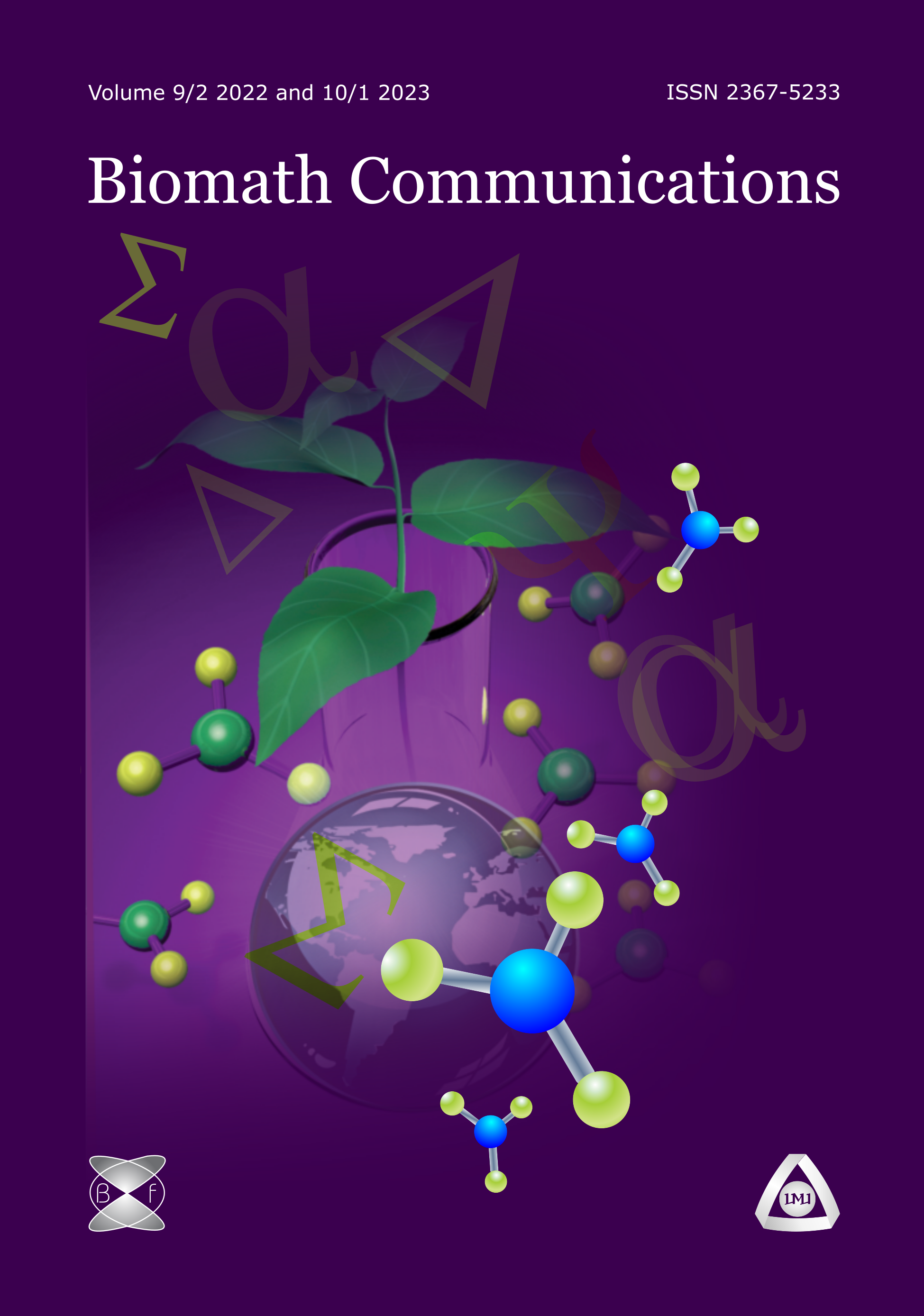Mathematical Analysis and Numerical Simulations of a Functional Differential Model of a Biological Digestion Process
DOI:
https://doi.org/10.11145/cb.v3i1.659Abstract
In this talk we investigate a bioreactor model for wastewater treatment by anaerobic digestion. The model equations involve discrete delays, describing the time delay in nutrient conversion to viable biomass. Using a properly chosen admissible value for the dilution rate D we prove the global convergence of the solutions towards an equilibrium point, corresponding to D [1]. We also apply a numerical model-based extremum seeking algorithm for stabilizing the system towards the equilibrium point in which the maximum biogas (methane) flow rate is reached.
Numerical simulations are included to confirm the theoretical results. The simulations are implemented in the simulation software environment SmoWeb [2].
[1]В Milen K. Borisov, Neli S. Dimitrova, Mikhail I. Krastanov, \textit{Functional differential model of an anaerobic biodegradation process}, Large-Scale Scientific Computing, 10th International Conference, LSSC 2015, Sozopol, Bulgaria, June 8-12, 2015, pp. 101-109, ISBN 978-3-319-26519-3
[2] SysMo, Ltd., Bulgaria, http://platform.sysmoltd.com, Accessed: April 2015.
Downloads
Published
Issue
Section
License
The journal Biomath Communications is an open access journal. All published articles are immeditely available online and the respective DOI link activated. All articles can be access for free and no reader registration of any sort is required. No fees are charged to authors for article submission or processing. Online publications are funded through volunteer work, donations and grants.
Authors who publish with this journal agree to the following terms:
- Authors retain copyright and grant the journal right of first publication with the work simultaneously licensed under a Creative Commons Attribution License 4.0 that allows others to share the work with an acknowledgement of the work's authorship and initial publication in this journal.
- Authors are able to enter into separate, additional contractual arrangements for the non-exclusive distribution of the journal's published version of the work (e.g., post it to an institutional repository or publish it in a book), with an acknowledgement of its initial publication in this journal.
- Authors are permitted and encouraged to post their work online (e.g., in institutional repositories or on their website) prior to and during the submission process, as it can lead to productive exchanges, as well as earlier and greater citation of published work (See The Effect of Open Access).

